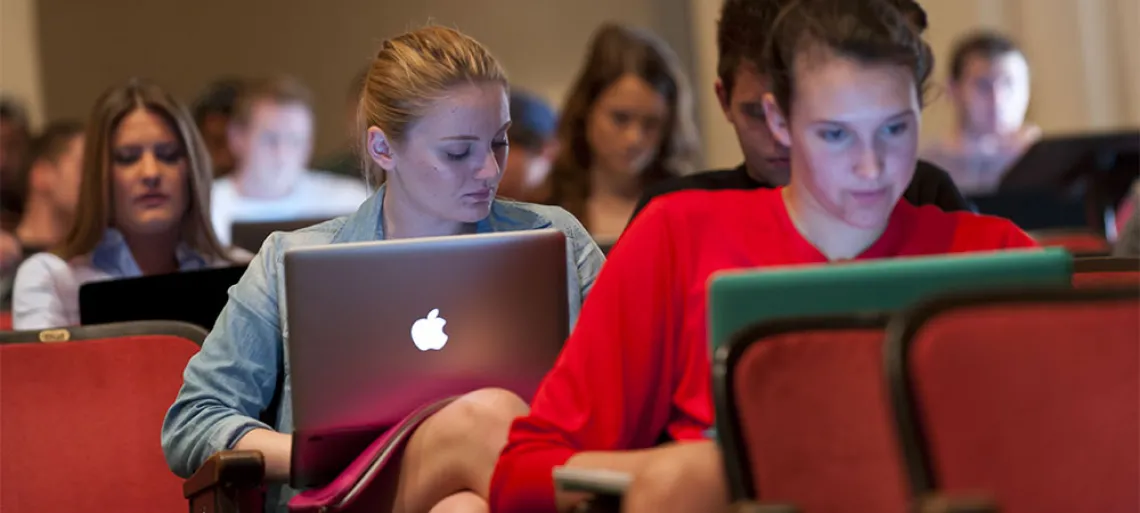Classroom Innovator: The Economics Department's Dirk Mateer

A class that meets in a 2,500-seat concert hall? Can any learning come of that?
"Large lecture classes can be better than small classes," says Dirk Mateer, Gerry Swanson Chair in Economic Education in the Department of Economics at the UA’s Eller College of Management. Mateer has built a national reputation as an economics teacher, lauded for his ability to expose how economic phenomena underpin daily life through use of pop culture and interactive class exercises.
Mateer, along with Steve Reff and other teachers in the Department of Economics, leads the large sections of Economics 200 that serve not only pre-business students but others across the University — a total of 2,000 students last fall. The classroom: Centennial Hall.
"Large lectures present amazing opportunities for crowd sourcing and can be a bonding experience for students with the people around them," Mateer says. "It’s like going to a movie and laughing at the same thing with the rest of the audience."
Mateer joined the UA last fall from the University of Kentucky and was at Penn State before that. He started as a high school teacher of math and science before going on to earn his doctorate in economics at Florida State.
"Big classes can be made small," Mateer says. "The old model is that you lecture, the students take in information, and then you repeat."
He turned the model on its head.
"Faculty can be reluctant to give up control of the classroom," he says. "But you can leverage things that make a large class great, like communication, demos, getting the students up onstage and participating, and group work."
Pop culture became a component of Mateer’s approach in the 1990s, when he began using clips from the TV show "Seinfeld" to demonstrate economic principles.
"The neat part about it is that there are certain pieces of pop culture that transcend eras," he says. "Like the bank-run scene in 'It’s a Wonderful Life.' Or 'I Love Lucy,' which is still amazing. Now I use the economics of 'The Office' and I have a project that looks at the economics of 'The Big Bang Theory.'
"There’s always something new and fun. Connecting the language of economics to phenomena that people intuitively understand — this is my research."

